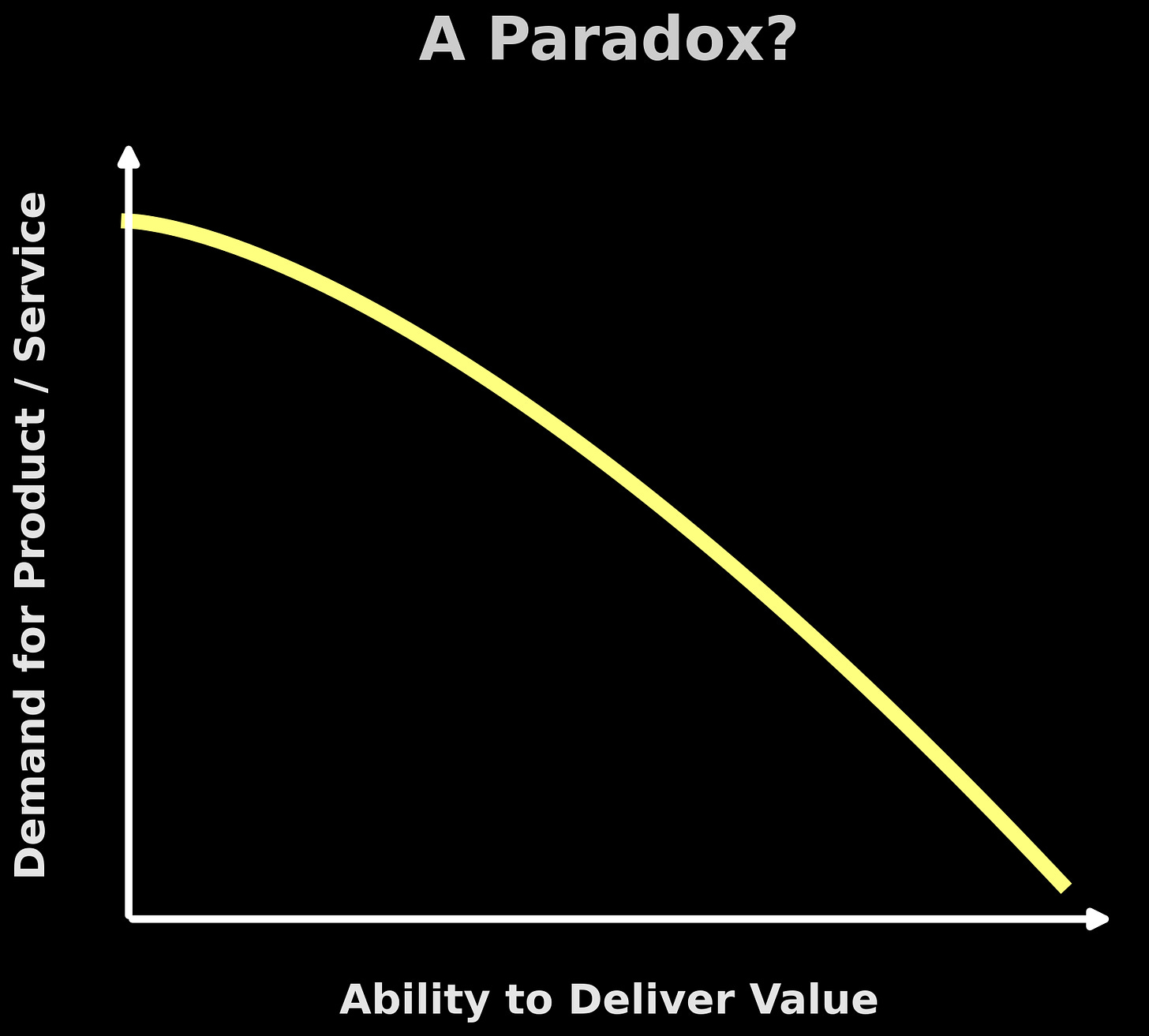What's the value in a brand?
A conversation with a former executive of a leading American investment bank - now running a boutique consultancy - reminded me of the power in brand.
The executive explained that, whilst at the bank, prospective clients had always been eager to speak. There was always lots of inbound, and outreach converted easily into meetings, with little friction. Once conversations began, sales cycles were short, and close rates high.
But after leaving the institution, inbound dried up, response rates to outreach fell dramatically, and "conversions" to paid engagements dropped.
The executive was surprised, because his knowledge and experience had not changed. If anything, the executive’s ability to deliver value had increased, as he was devoting more time to keep abreast of industry developments. And yet, the demand for said expertise had declined.
In the eyes of the executive, ability to deliver value had risen, yet demand had fallen! "Life is unfair!", said the executive.
A strong brand signifies a range of factors:
Credibility / track record
Proven standards of service delivery
Access to internal networks, resources, and frameworks
Third-party validation (brand acts a “seal of approval”)
Reputation at stake (“more to lose”)
When someone operates under a powerful brand, they borrow accumulated equity.
It is rational, from a buyer’s perspective, to place higher value on goods or services bought under a brand, than without, as the former carries less "risk" than the latter.
When, as consumers, we purchase a product or service, we calculate our willingness to pay on the basis of "expected value"; a function of the perceived outcome that the purchase will drive, and the probability of said outcome being realised.
In this case, the executive had not operated outside of a "strong brand" environment - and was surprised by the contrast.
The absence of a strong brand has significant adverse commercial implications:
Lower margins (discounts required to overcome doubt)
Longer sales cycles (trust-building needed before closing)
Higher friction for the sale (value must be delivered upfront)
What can an individual, operating without a strong brand, do to offset the above challenges?
Some strategies include:
Lean into networks that already know, like, and trust the individual
Partner with established organisations to “inherit” brand equity
Reduce the trust required by offering outcome-based guarantees
Leading with value to reduce the trust gap
Long term, build brand equity!
Another interesting takeaway to the above, relates to "target hiring pools" for early stage companies, without yet a strong brand, recruiting into revenue-generating functions, but that's a story for another post. :)
